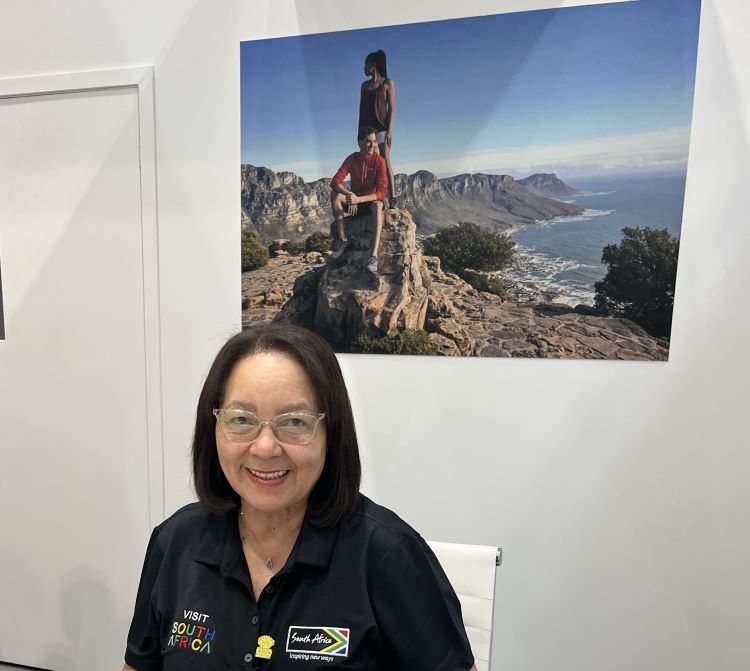Virtual PATA Travel Mart 2020 saw experts from around the world coming together at PTM Forum. The topic of deliberation was ‘The impact of health and hygiene on post COVID-19 destination competitiveness in Asia Pacific’. Here’s what they had to say…
Nisha Verma
Safety is priority, says Tripadvisor
While the world came to a halt when the pandemic struck in late February, Tripadvisor took it on them to understand the consumers and what they were thinking about travel. The key takeaway, according to Fabrizio Orlando, Global Industry Relations Associate Director, Tripadvisor, was that customers wanted to feel safe. “If we look at Asia Pacific, 70 per cent of consumers are concerned how destinations are handling COVID-19 cases for both infection and fatalities. Over 72 per cent of people told us that it’s very important how destinations are creating a culture of social responsibility for preventing the virus. This is the most interesting shift. Less than 40 per cent of people are now saying price is the most important criteria,” he revealed.
Apart from surveys, there were many changes that Tripadvisor has made. “We realised that the key issue for our owners was cash flow. Hence, the first decision we took was to freeze the membership fee for our owners. Secondly, we realised that they needed data, insights and information. We started running our surveys. Since the most important thing for people is safety, we launched an initiative called Travel Safe. We saw that there was a 16 per cent higher click-through rate on properties with Travel Safe measures on Tripadvisor. It’s important to understand that currently, promoting transparency and good practices is key,” he concluded.
Competitiveness drives recovery
Maksim Soshkin, Research and Analysis Specialist, Aerospace, Aviation, Travel and Tourism, World Economic Forum, shared that the Travel and Tourism Competitiveness Index (TTCI) benchmarks the travel and tourism competitiveness of 140 economies and measures the set of factors that enable sustainable development of the sector. “In the context of COVID-19, the TTCI can act as a tool to better understand what competitiveness factors might boost or challenge travel and tourism recovery within countries in forming recovery strategies. When they compared the health and hygiene scores of Asia Pacific economies, they found overall tropical and personal competitiveness to identify the readiness of countries to deal with the growing role of health, safety and travel decisions. We found that the region is generally competitive, especially with natural and cultural resources.”
“We also found that on average, Asia Pacific economies lag similar competitive economies when it comes to health and hygiene infrastructure. As a result, if you look at the scenario where global travel resumes but health and safety is more important than ever, the region may face the challenge in competing with other tourist hotspots like Europe. Of course, this does not consider the impact of health policy decisions or other factors on how COVID has spread. Hence, it does not tell the whole story,” he added.
‘No country is prepared’
Jessica A Bell, Senior Program Officer- Global Biological Policy and Programs, Nuclear Threat Initiative (NTI), shared that the NTI and John Hopkins Centre for Health Security teamed up at the economics intelligence unit to produce the Global Heath Security (GHS)index. “What we found is that no country, regardless of income level, is fully prepared. In fact, most countries have major gaps across all categories assessed in the index. Overall, the GHS index found significant weaknesses in countries’ ability to prevent, detect and respond to heath emergencies and also found major gaps in the health systems and vulnerabilities to political, socio-economic and environmental risks that can often confound outbreak preparedness and response,” she shared.
She revealed that by clearly highlighting gaps in a country’s health and security capabilities, their aim was to stimulate political will, create accountability and encourage leaders to prioritise host security. “The COVID-19 pandemic may have caught governments by surprise, but medical and public health communities have long warned of the potential for a high-consequence pandemic. And as we have seen with COVID, countries with robust capacities for preventing, detection and responding to outbreaks can avert many of the social political, economic and health system costs of such crises,” she said.
‘Residents make them attractive’
While people are thinking of travelling and waiting for destinations to open borders and offer safe tourism options, there is a growing concern on what the residents of these destinations are thinking when it comes to receiving international tourists. Olivier Henry-Biabaud, Founder & CEO, TCI Research, sharing insights on the same, said, “Currently, 73 per cent residents across six iconic cities in Asia say that their city should continue promoting tourism, which is three points above the global average. Also, 77 per cent residents in Asia are saying that they are still proud to see tourists and visitors coming from far to their cities and communities, which is two points above the global average. Three out of 10 residents agree that tourism today needs financial support to help the local economy recover, which is six points above the global average. In addition, 76 per cent residents believe that their city has proper sanitary rules to welcome visitors in good condition, which is 12 points above the global average.”
He added that another good news is that tourism promoters in Asia today, among residents, are younger than average than those in other regions of the world. “This is a good sign that the young people are also the future of tourism. There is less than four per cent of those who are rejecting tourism and saying they have had enough. Almost 70 per cent of the residents say they are happy with tourism and welcoming tourism back,” he said.
 TravTalk India Online Magazine
TravTalk India Online Magazine





